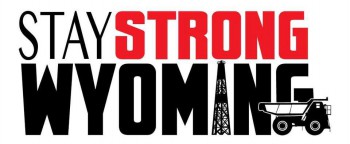(Casper Star Tribune, April 4) – Peabody Energy emerged from bankruptcy Monday, leaving behind $5 billion in debt and providing $1.26 billion in surety bonds to replace its unsecured cleanup costs.
The St. Louis-based firm is the last of the large coal companies operating in Wyoming to exit Chapter 11 since a downturn in the coal industry rocked the Powder River Basin coal sector.
Thirty-year lows in prices collided with over-leveraged firms and oversupply of coal to create what analysts at the time called a “perfect storm.”
Now Peabody joins Alpha Natural Resources and Arch Coal as restructured companies post-bankruptcy. Peabody’s emergence Monday comes just 10 days short of a year from its filing date in 2016.
Along with job losses and state revenue declines, the coal bankruptcies gave new attention to the practice of self-bonding. Before bankruptcy, the three companies were collectively responsible for $1.38 billion in cleanup costs from mining in Wyoming, much of that unsecured.
Self-bonding allows companies to promise cleanup costs based on the strength of their financial position.
Environmental advocates argued that the bankrupt companies no longer qualified for self-bonding once they proved insolvent. State regulators, they said, brokered deals with the companies to allow self-bonding until the companies emerged from bankruptcy as a way to say the state kept coal jobs and revenue flowing through the downturn.
With the big three coal companies embarking on a fresh start, environmental advocates say they hope Wyoming regulators will put an end to coal self-bonding “once and for all.”
“Now is the time to do it, and we hope that state regulators, policymakers and legislators act on that,” said Shannon Anderson, lawyer with the Powder River Basin Resource Council.
Peabody has replaced its self-bonds. However, the company’s CEO Glenn Kellow said in March that Peabody maintained its right to self-bond and might continue the practice if and when it was feasible.
“Of course, we disagree on their interpretation of the law,” Anderson said in response to the company’s position. “It should be concluded that these companies are not in the clear, both financially and from a regulatory standpoint. Again, the opportunity is now (to end self-bonds).”
Democrats in D.C. are pushing a bill that would end self-bonding, which is currently a state-determined practice.
A spokesman for the Department of Environmental Quality said that since Peabody has not submitted a request to self-bond, regulators have not made a decision as to its eligibility.
“If that is something they do in the future, then we will look at it,” said department spokesman Keith Guille. “We treat all companies like that. When they come for bonding, whatever tool they are going to use, we make sure they qualify.”
Peabody exits bankruptcy with 1,400 employees in the Powder River Basin. Kemal Williamson, president of Peabody in the Americas, said Wyoming workers were key to the company’s future success.
“In addition to safely producing 113 million tons of coal, our PRB mines reclaimed 900 acres of land as part of our sustainability commitment,” Williams said in a statement. “We have started rebuilding our workforce to meet customer needs; we will deliver strong safety performance, employ innovative practices as a world-class mining operation and continue contributing to the Wyoming economy.”
Peabody is trading on the New York Stock Exchange under the ticker BTU.
The company’s former common stock, traded as BTUUQ, had no value as of Monday afternoon.
